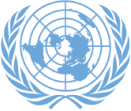STATEMENT BY AMBASSADOR RAWLE LUCAS, EXECUTIVE DIRECTOR, DEPARTMENT OF GLOBAL ECONOMIC COOPERATION, TRADE AND INVESTMENT, MINISTRY OF FOREIGN AFFAIRS OF GUYANA ECOSOC FORUM ON FINANCING FOR DEVELOPMENT, NEW YORK, 23 MAY 2017
Mr. President,
The delegation of Guyana associates itself with the statement by Ecuador on behalf of G77 and China, Maldives on behalf of AOSIS and St. Lucia on behalf of CARICOM. I wish to add a few points of particular relevance to Guyana.
Guyana’s strong interest on issues related to financing for development, from Monterrey through to Addis Ababa, is well known. As a post-HIPC, low-lying coastal developing state, we feel constrained to continue that activism on account of the diverse challenges we face to assure success in achieving the 2030 Agenda for Sustainable Development, including the SDGs.
Our experiences to date, suggest three priority actions within the context of efforts for the full, timely and effective implementation of the Agenda. First, there is a need to inspire the kind of growth that can be transformative at the national level. Second – it is now necessary and opportune to elaborate a more meaningful and encompassing measure of development progress. And, thirdly, it is important to underpin confidence in the provision of the means of implementation for the 2030 Agenda by ensuring a robust and institutionalized system of follow-up and course correction in our pursuit of the SDGs.
Mr. President,
Unless we can provide growth that is broad, transformative and sustainable, it is unlikely that we will attain the objective of leaving no one behind or of reversing the growing impacts of climate change. It is also equally clear that efforts to do so must now be undertaken in a context that is increasingly inauspicious, including deep structural exogenous issues that negatively affect our development efforts. Guyana’s entire GDP depends on international trade. Without trade, businesses could not operate, employment would be severely restricted and the quality of life would be dismal and unsatisfactory for most.
Where foreign revenues are concerned, almost all of it comes from the export of primary commodities. Consequently, it should not be difficult to understand Guyana’s concern about the future of commodity prices, the general un-competitiveness of the global trade environment and the assault on efforts at regionalism and regional trade regimes which could limit the utility of free trade.
For this reason, we find merit in the call of the IATF report to create a virtuous cycle of growth by significantly increasing investment while also promoting the provisions for social protection. In this regard, Guyana has committed to strong action to promote sustainable development in all its dimensions, including greater prosperity for all its people, through the pursuit of a Green State Development Strategy that embraces economic diversification, social cohesion and environmental integrity. The core principles of this Strategy are - good governance, social cohesion and inclusion, education and quality of life, decarbonization and climate resilience, sustainable use of biodiversity and increased resource efficiency, and sustainable financing. With regard to the latter, Guyana is taking steps through its GSDS to redirect and mobilize investments into sustainable infrastructure projects and green economic sectors.
Guyana fully understands the role that nature plays in enabling the sustainability of life on this Planet. Despite its already small carbon footprint, Guyana intends to continue decoupling economic growth from environmental degradation. The international community should not ignore the responsible conduct of a country like Guyana which, through its conservation measures, is ensuring that important environmental services are being delivered every day to the people of the world. For this reason, Guyana is acting in concert with the global community to model the effective integration of the three dimensions of sustainable development as an imperative in the successful implementation of the 2030 Agenda and the SDG.
Mr. President,
One of the core preoccupations in the implementation of the Addis Agenda should be to ensure that there is early progress in capturing, more effectively, measures of progress in development. The limitations in the utility of GDP per capita as a measure of development have been well demonstrated. This is especially true in relation to middle income countries such as Guyana where the majority of the global poor live and which often as regional growth centres are needed to contribute to lifting other countries and people out of poverty.
While the per capita income of Guyana has risen appreciably over the years, this progress has brought the country to a point where it is being weaned off of ODA both directly and through funds and programmes of the multilateral financial institutions and those of the United Nations. Further, it is being pushed into unfamiliar territory where loan conditions are onerous and friendlier to creditors than to borrowers.
Mr. President, this is an issue on which the international community needs to take pause lest we end up creating a global financial structure that resembles the one that led to the debt crisis that emerged in the 1980s. The international community needs to be very careful in this period of transition for those countries that find themselves in a similar position like Guyana. It is Guyana’s view that the reallocation of global financial resources must search for the best financing mechanisms that produce a return on investment that is equivalent to the improvement in the living conditions of its people, and by inference, the rest of the developing world especially among the poor and vulnerable populations. In this regard, some of the financing mechanisms being proposed in the Inter-Agency Task Force might provide a way forward.
Mr. President,
The third critical ingredient for success is the provision of a space to take account of progress and gaps and action to ensure that we stay on course. We believe that the Forum on FFD offers one such space and the provision of the substantive IATF report, which we welcome and the conclusion of negotiations on the outcome document in advance of the Forum are successes on which we should build in the years ahead. Together, the Report and the outcome provide an ample basis to undertake the course correction that is necessary to promote a trajectory of implementation and growth that will offer the best opportunity for all countries to achieve the SDGs.
Guyana is strongly committed to the achievement of the SDGs. The demands for its achievement are daunting but we remain steadfast in our commitment. We recognize in this regard that without adequate determination of progress towards our goal our efforts might prove counterproductive to the concept and practice of sustainable development. For this reason, we call for more concrete efforts to support countries in developing capacities not only for data collection, but also for data analysis, dissemination and use in policy formulation.
In closing, Guyana wishes to place on record its appreciation for the strong leadership that you have provided in assuring the conscientious follow-up of the Addis Agenda. In this regard, we also commend the work of the Permanent Representatives of Belgium and South Africa for successfully facilitating negotiations among Member States on the draft conclusions and recommendations of this Forum in good time. These are promising signs for our future work.
I thank you.


